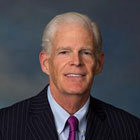
The fear of blindness is something we all share. The risk of eye disease increases substantially with age, but it can also affect young people. There are many eye diseases that can develop without any symptoms at all. Fortunately, however, they can be detected by a simple eye exam, and treatment is almost always successful.
We often blame declining vision on “old age” – whatever we mean by that. But this is never true. The eyes are one of the toughest parts of the body. We lose strength, speed and stamina as we age, but the eyes continue to have excellent vision unless there is a disease process. It is common for people in their 90’s to have nearly 20/20 vision if they have taken care of their eyes.
These are the most common eye diseases that we worry about:
Glaucoma
There are 3 million Americans with glaucoma and at least 1 million don’t know they have it. Most types of glaucoma have no symptoms at all until the visual loss is very advanced. Vision loss from glaucoma is very slow and it is amazing how much vision can be lost before people are aware of it.
Although glaucoma is a blinding, incurable disease, treatment is usually very straightforward – just an eye drop or two for the vast majority and treatment is almost always successful in preserving vision.
Macular Degeneration
Macular degeneration causes loss of central vision – the most important part of our vision since it is what we use to read, watch television and drive. Macular degeneration affects approximately 11 million people in the U.S. In the past there were no treatments – so making the diagnoses was not important. But now the treatments are very successful and work best when they are started as early as possible.
Diabetic Retinopathy
Diabetes can cause the tiny blood vessels in the eye to bleed and this can cause decreased vision and even blindness. The risk increases with age, duration of diabetes and the level of control. However, serous retinopathy can occur even when the diabetes is well controlled. So a yearly eye exam is essential for all diabetics. If treatment is necessary, it can be very successful.
Cataracts
The most common cause of visual loss as we age are cataracts. This is a process that affects everyone and we all will probably need cataract surgery at some point. There are currently 4 million cataract operations performed each year. This is an amazing operation that offers patients the opportunity to correct their vision and reduce their dependence on glasses. One study with 221,000 cataract surgery patients showed a success rate of 99.5%.
People of any age with symptoms or risk factors for eye disease should see an eye doctor. At age 40, the doctors at Atlanta Ophthalmology Associates recommend a baseline exam so that future eye exams can compare to your baseline results. The exam will include a refraction to check for any refractive errors that need correction with glasses or contacts, an intraocular pressure reading and a view of the back of the eye to assess for glaucoma and macular degeneration. Finally, the doctor will also examine your blood vessels within the eye to check for any health related conditions that can appear in those visible vessels (diabetes, other vascular issues etc.). If the doctor sees a need, testing in a specific area can determine in detail whether there is cause for concern. A simple eye exam from a capable provider can protect your most valuable vision.

